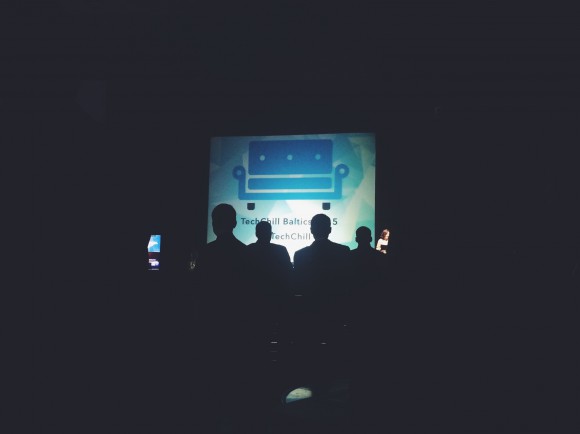
Riga is in the fun period of a startup scene on the rise. Unlike Stockholm’s giants like Spotify or Truecaller sucking up all the talent and defining the scene, Riga’s companies are starting to grow, build new infrastructure, and define what it means to be a startup in Riga without much context.
That’s not to say there’s been no history of a startup scene in Riga, especially in social networks. Back when Facebook was slow to expand every country had their own clone that eventually died out, but Draugiem.lv is one of the last to hold onto more market share than Facebook (and now is spinning off new products). Additionally Odnoklassnikki.ru, a social network popular in Russia and the old Soviet states, has ties to Riga with Rubylight’s investment firm, which provides in-house Odnoklasnikki technical talent to help startups with funding and scaling issues. Their most recent hit was helping build up Ask.fm into a hugely popular anonymous Q&A site, which just sold to Ask.com for an undisclosed sum.
If you were to put Riga’s new generation of startups into one box, you could say that they’re seeing B2B as a more clear path to revenue, but cast a wide net as opposed to heavy B2B software. Infogram offers its infographic service to anyone that wants to make a nice looking and interactive infographic, but sells its platform to large media companies. Sellfy empowers anyone to sell digital goods to their personal audience through one link, but is becoming more of a warehouse for digital goods with their Sellfy marketplace (a similar story could be said for Fastr). Froont positions itself as responsive prototyping for the designer, but makes money through team tools.
If you can look at startup scene’s in waves, like Infogram’s CEO Uldis Leiturts describes, Riga is on the way up, while in other regions a wave of startups have turned into a sea of heavily funded growth companies, which after a while will see another wave of startups.
After mentioning that we seem to be writing more about Latvian startups than Estonian startups, Techhub Riga and Reach.ly cofounder Ernests Stals also mentions ‘the wave’ by suggesting that Estonian startups are on a different scale of news, like opening up an office in Boston, rather than seeing a ton of new startups launched. “Estonians got Skype success but for us its hard work. Basically we have covered all the pipelines so you have you sit depressed at home with an idea, then at a monthly tech meetup then you see that there are other people with an idea. You drink beer you get to know some people, and at an event like Garage48 you can see how much you got done in 48 hours. Maybe not much happens in the first year, but then they start stretching their hardware muscle or tech muscle, and you [start seeing new startups].”
This hard work has also manifested itself in the startup scene with coworking spaces like Techhub Riga expanding into a larger space, new co-working spaces like The Mill popping up, and with an online platform like Labs of Latvia launching in the coming months.
This year’s TechChill Baltics, the conference’s fourth iteration, has followed the scene. For example, the first iteration of the conference focused much on the idea stage of a company’s lifecycle, while this year’s conference focuses heavy on internationalization, growth, and hiring.
“We have great potential here. Traditionally Riga is where we have engineering skills – since Soviet times and before.” says Stals, pointing out that bigger players like consultants Accenture and Tieto have a base in the Riga to take advantage of the region’s in coders and engineers. “I wouldn’t say we are competing with them for talent, but we provide some diversification. There’s someone who wants a stable job, and some that want to create a new space. More and more people in suits are appearing here,” says Stals gesturing to the TechChill Baltics crowd.




